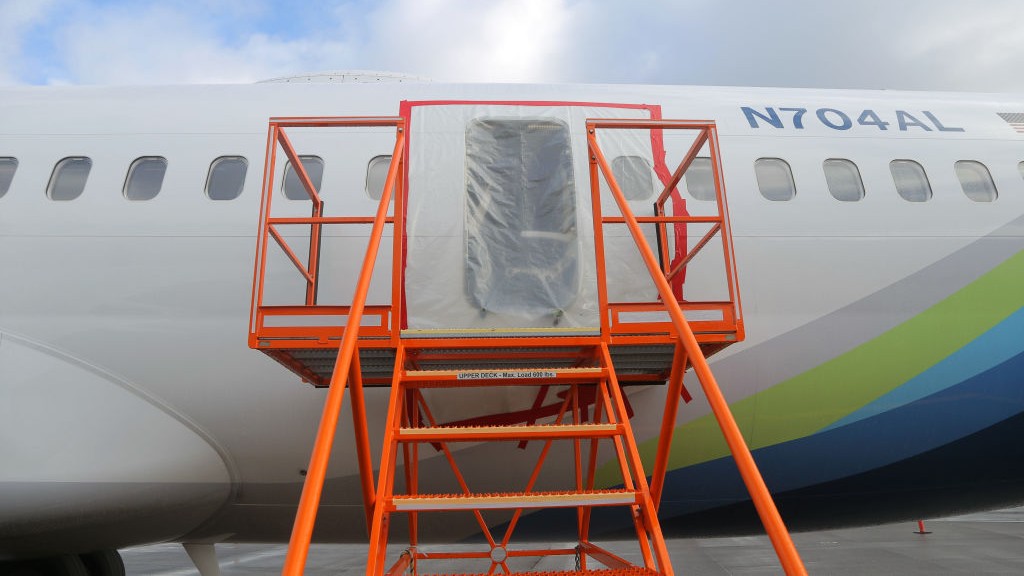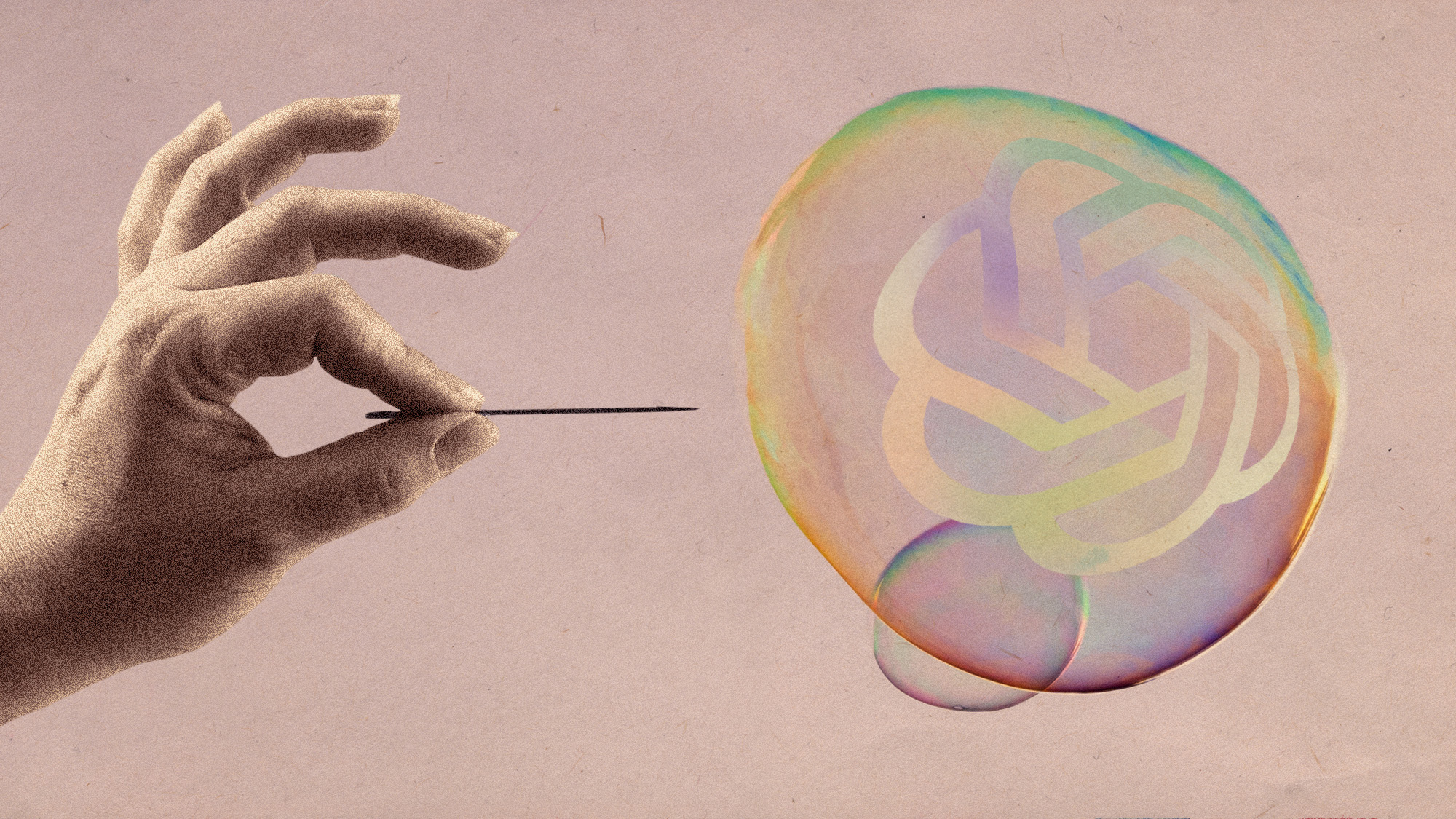How Boeing dropped the ball on air safety
The company has been plagued by accidents and crashes that have hurt its once-golden reputation


A free daily email with the biggest news stories of the day – and the best features from TheWeek.com
You are now subscribed
Your newsletter sign-up was successful
It hasn't been a good start to the year for Boeing. The American airplane manufacturer was back in the news on Jan. 5 after the door plug on an Alaska Airlines Boeing 737 Max 9 blew off in midair. The incident led to the grounding of the planes and it was soon discovered that there were loose bolts and mechanical issues on a number of them.
The incident is the latest of several problematic turns for Boeing, seen as a gold standard of American engineering and innovation for decades. The Alaska debacle comes five years after a pair of 737 Max crashes led to the deaths of 346 people. Boeing at that time grounded its Max planes and pledged to fix the issues with the model. But in the days since the Alaska incident, Boeing has seen a slew of problematic headlines, many of which didn't even involve the Max variant; an All Nippon Airways Boeing flight was forced to turn back after a crack in the cockpit window, China Southern Airlines decided to delay delivery of its Max planes, and a pair of Boeing aircraft clipped each other at Chicago's O'Hare International Airport.
Boeing has once again pledged to rehash its safety and manufacturing procedures, and the FAA is tightening its oversight of the company. But the question remains: Where did Boeing go so wrong?
The Week
Escape your echo chamber. Get the facts behind the news, plus analysis from multiple perspectives.

Sign up for The Week's Free Newsletters
From our morning news briefing to a weekly Good News Newsletter, get the best of The Week delivered directly to your inbox.
From our morning news briefing to a weekly Good News Newsletter, get the best of The Week delivered directly to your inbox.
A cultural shift
Boeing's "reputation for safety and excellence was such that people used to say, 'If it’s not Boeing, I’m not going' — and actually mean it," James Surowiecki wrote for The Atlantic. But while Boeing historically had a culture focused on pristine engineering, a corporate merger in the 1990s "turned it from a company that was relentlessly focused on product to one more focused on profit," Surowiecki argued.
In the past, "The people who dictated [the company's direction] were the engineers. In the post-merger Boeing, the people who did so were more likely to be accountants," Surowiecki added. As a result of this profit-driving, the company has been outsourcing large portions of its productions, even though building airplanes "requires ... a willingness to spend freely on reliability and safety, and a culture that tolerates the reporting of mistakes," he concluded.
Many critics of the company's culture "see Boeing's recent production errors as evidence the company hasn't improved in the most important measure: making planes safer," Douglas MacMillan and Michael Laris wrote for The Washington Post. "You're still building unsafe airplanes," Ed Pierson, a former manager at Boeing's 737 factory, told the Post. Pierson added that the main problem at his worksite was that "poor factory conditions posed threats to production quality."
It's the processes at fault, not manufacturing
Others say Boeing's manufacturing isn't the true party to blame for the company's problems. The Boeing 777, for example, has over three million individual parts, meaning "more than three million opportunities for something to go wrong during assembly alone," Ashley Nunes wrote for Canada's The Globe and Mail. This "makes me wonder whether the outrage directed at Boeing is entirely warranted," she added. Instead of blaming Boeing, "What we need is more transparency from these companies so the public can better understand how and why design decisions are made," Nunes opined. At that point, "We can decide whether those risks outweigh the reward."
A free daily email with the biggest news stories of the day – and the best features from TheWeek.com
In the case of the Alaska incident, the door plug wasn't built by Boeing, but by a third-party company, Spirit AeroSystems. The blowout "may have been due to alleged oversights that happened after Spirit had added the door plug, once Boeing retook ownership of the plane," Bjorn Fehrm, an analyst for aviation outlet Leeham News, told Wired. As a result, Fehrm was "leaning toward processes being at fault, not the plane's design."
At the end of the day, though, "Boeing is responsible for certifying that each completed plane conforms to the approved design and is safe to operate," Lauren Rosenblatt reported for The Seattle Times. It must also "inspect and test products and ensure that “post-delivery activities” are completed." So even if there was a flaw with the Spirit-made plug, "It's hardly reassuring to know that Boeing might have someone else to blame, because ultimately Boeing is responsible for the safety of the aircraft it delivers," Peter Coy opined for The New York Times. While Boeing continues to ensure its commitment to safety, "If it can't catch mistakes, who can?" Coy concluded.
Justin Klawans has worked as a staff writer at The Week since 2022. He began his career covering local news before joining Newsweek as a breaking news reporter, where he wrote about politics, national and global affairs, business, crime, sports, film, television and other news. Justin has also freelanced for outlets including Collider and United Press International.
-
 Local elections 2026: where are they and who is expected to win?
Local elections 2026: where are they and who is expected to win?The Explainer Labour is braced for heavy losses and U-turn on postponing some council elections hasn’t helped the party’s prospects
-
 6 of the world’s most accessible destinations
6 of the world’s most accessible destinationsThe Week Recommends Experience all of Berlin, Singapore and Sydney
-
 How the FCC’s ‘equal time’ rule works
How the FCC’s ‘equal time’ rule worksIn the Spotlight The law is at the heart of the Colbert-CBS conflict
-
 Companies are increasingly AI washing
Companies are increasingly AI washingThe explainer Imaginary technology is taking jobs
-
 Trump wants a weaker dollar, but economists aren’t so sure
Trump wants a weaker dollar, but economists aren’t so sureTalking Points A weaker dollar can make imports more expensive but also boost gold
-
 Can Trump make single-family homes affordable by banning big investors?
Can Trump make single-family homes affordable by banning big investors?Talking Points Wall Street takes the blame
-
 Why is pizza in decline?
Why is pizza in decline?In the Spotlight The humble pie is getting humbler
-
 How prediction markets have spread to politics
How prediction markets have spread to politicsThe explainer Everything’s a gamble
-
 SiriusXM hopes a new Howard Stern deal can turn its fortunes around
SiriusXM hopes a new Howard Stern deal can turn its fortunes aroundThe Explainer The company has been steadily losing subscribers
-
 How will China’s $1 trillion trade surplus change the world economy?
How will China’s $1 trillion trade surplus change the world economy?Today’s Big Question Europe may impose its own tariffs
-
 Is a financial market crash around the corner?
Is a financial market crash around the corner?Talking Points Observers see echoes of 1929
